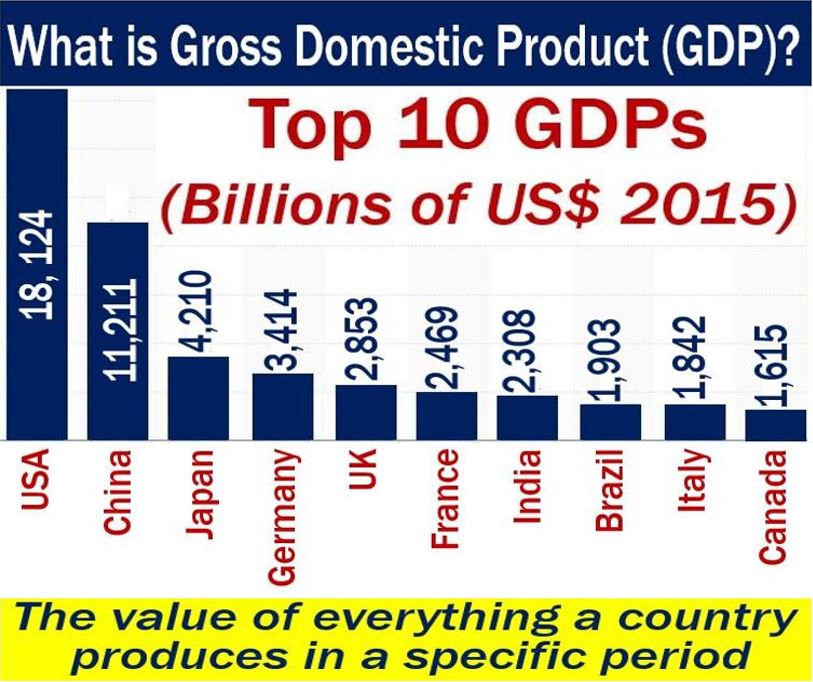Gross domestic product (GDP) is probably the most important economic measure of the state of a nation’s economy. With just one figure, one can tell whether a country’s economy has changed compared to a past time.
Gross Domestic Product is the net value of all goods and services that an economy produces during a specific period. The total accounts for taxes, and subsidies.
Put simply; gross domestic product is the sum of all economic activity in a country over a specific period.
GDP figures allow economists to record and analyze the economic output of a region or country. Economists do this over a specific period, i.e., yearly, quarterly, or monthly.
Gross domestic product patterns help us determine when an economy may be heading the wrong way. It also helps us determine when we are in a recession.

(Image: adapted from statista.com)
According to the European Union, an economy is officially in recession if it experiences two successive quarters of GDP contraction.
Calculating gross domestic product
There are three main ways of calculating GDP:
Output: this includes the value of goods and services that all sectors of the economy produce.
Expenditure: the value of all goods and services that consumers and the government purchase. It also includes investment in machinery and buildings, as well as total exports minus imports.
Income: the value of income, i.e., mainly wages and profits.
In theory, if we do the calculations correctly, all three approaches should produce the same total.
How to calculate gross domestic product
GDP = C + G + I + NX
C = an economy’s net private consumption and consumer spending. G = net government spending. I = a country’s businesses spending on capital. NX = total net exports.
Why is gross domestic product important?
GDP is one of the most popular indicators of the current economic situation of a country. We also use it to determine nation’s standard of living. However, GDP per capita is a better indicator of living standards.
We can also use GDP to determine a specific industry’s relative contribution. This is because we base GDP on the total ‘value added.’ In economics, value added refers to an industry’s contribution to total GDP.
GDP has a considerable impact on practically everyone in a country. When an economy is experiencing healthy economic growth, unemployment rates decline, and salaries rise. There is also an increase in businesses’ demand for labor.
Changes in GDP also affect a nation’s stock market. For example, when gross domestic product expands, companies’ incomes grow. Growing incomes subsequently push up the value of stocks and shares.
The book ‘System of National Accounts,’ published in 1993, is currently the international standard for measuring GDP.
We do not include the shadow economy in GDP statistics. The shadow economy includes work and business activities that operate ‘below the radar.’ People in the shadow economy, or black market, pay no taxes because they do not declare their incomes. This means that countries are probably considerably wealthier than official figures suggest.
